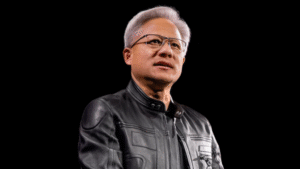Menlo Park, United States – Meta Platforms has taken a bold and unprecedented step in the global AI race. CEO Mark Zuckerberg announced this week the formation of Meta Superintelligence Labs (MSL), a newly consolidated organization uniting the company’s AI research, infrastructure, and product efforts under one umbrella. The move signals a multi-billion-dollar escalation in Meta’s ambition to build what Zuckerberg calls “personal superintelligence for everyone.”
The reshuffle includes the appointment of Alexandr Wang, founder and former CEO of Scale AI, as Meta’s first Chief AI Officer. Wang joins Meta as part of a $14.3 billion deal and will co-lead MSL alongside Nat Friedman, former GitHub CEO and long-time Scale investor. The duo is now tasked with turning Zuckerberg’s long-term vision into practical breakthroughs that could reshape both Meta—and the broader AI ecosystem.
Meta’s ambition? To lead the world in developing AI superintelligence, a loosely defined concept referring to intelligence that surpasses human-level reasoning and creativity across virtually all domains. In Zuckerberg’s internal memo, he described the initiative as “the beginning of a new era for humanity,” emphasizing Meta’s long-term investment horizon and “unlimited capital” strategy.
High Risk, High Stakes
Meta’s reorganization is backed by a talent war that is intensifying by the week. The company has reportedly hired 11 top AI researchers from OpenAI, Google DeepMind, and Anthropic—with some recruitment packages rumored to reach $100 million. The exodus has sparked internal tension at OpenAI, where Chief Research Officer Mark Chen likened the departures to “theft,” and other tech giants are responding with retention incentives and cross-collaborations.
Zuckerberg, however, seems unfazed. Meta is pouring tens of billions of dollars into its AI infrastructure, building hyperscale data centers and seeking an additional $29 billion in private capital, according to Financial Times. The company’s ability to fund this expansion comes from its robust digital advertising business, which generates over $40 billion per quarter, giving Meta a financial cushion unmatched by most rivals.
Strategic Appointments & Broader Implications
Wang’s appointment has raised eyebrows, not least because he lacks formal computer science credentials—an unusual choice for such a technical role in a company packed with PhDs. But Zuckerberg defended the decision, stating: “I consider him to be the most impressive founder of his generation.” Combined with Friedman’s experience in scaling developer tools and AI startups, the leadership team signals Meta’s intention to fuse product execution with deep infrastructure bets.
Meanwhile, competition is escalating across the board. Microsoft continues to back OpenAI with more than $13 billion in investments, while Google is simultaneously building out its Gemini LLMs and expanding partnerships, including reportedly supplying chips to OpenAI. OpenAI itself is seeking to raise up to $500 billion for its Stargate data center initiative.
The Superintelligence Equation
Despite the hype, superintelligence remains undefined and theoretical. Yet, Meta’s wager is clear: whichever firm first operationalizes AGI or beyond will dominate the next tech cycle. For now, that means pouring vast sums into compute capacity, hiring elite AI talent, and moving faster than regulators or slower-moving incumbents.
Whether this translates into business impact or scientific breakthroughs remains to be seen. But one thing is certain: Meta’s all-in gamble has dramatically altered the AI landscape, pushing the boundaries—and perhaps the timeline—of what’s possible.









